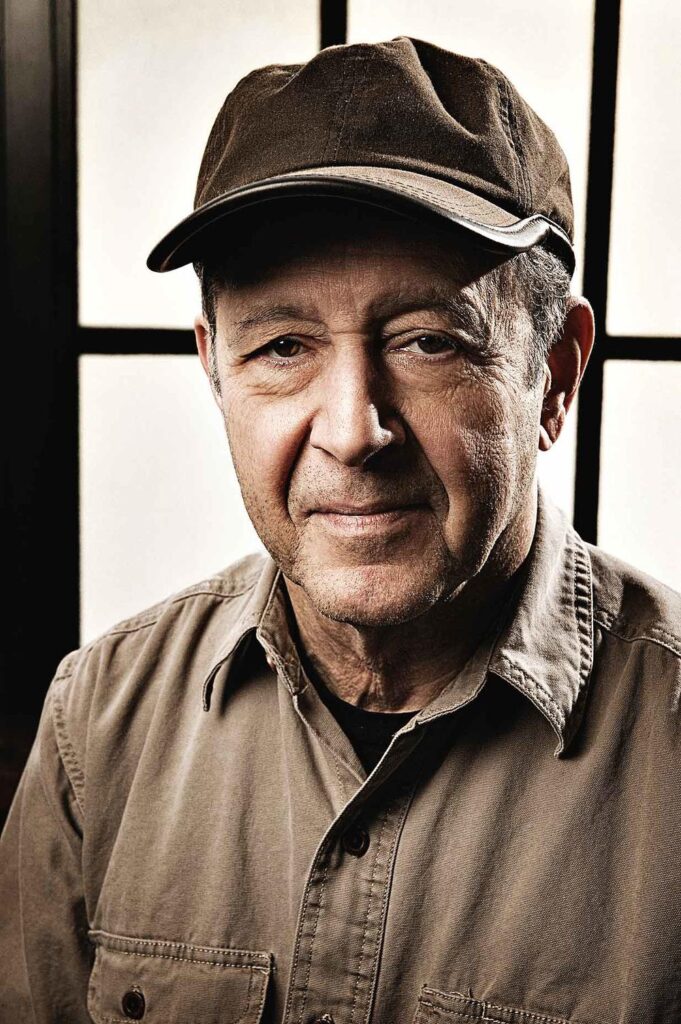Reich premiere spotlights fervent pulse of strong Philharmonic program

For some concertgoers, there was a hint of nostalgia in the New York air this week, courtesy of premieres from two composers who were avant-garde superstars 50 years ago—Philip Glass and Steve Reich.
Both men have enjoyed deserved international status for decades now, but with less frequent appearances locally, so the chance to hear new ideas from them twice in one week has been exciting. Thursday it was the local premiere of Glass’ The Triumph of the Octagon, played by the Chicago Symphony Orchestra in Carnegie Hall. Around the same time, the New York Philharmonic was delivering the first performance of Reich’s Jacob’s Ladder a few blocks uptown in David Geffen Hall. Heard Friday, this was another fine work in Reich’s vital career.
Jacob’s Ladder was part of an excellent concert for the Philharmonic, bookended by Schubert’s “Unfinished” Symphony and Leif Ove Andsnes playing Beethoven’s “Emperor” Piano Concerto (No. 5). On paper, that looked like a too-random jumbled concert program, meant to check off the cliched requirements of short piece, concerto, and symphony. This impression was first upended by the durations, with the concerto (the one work before intermission) the longest and Jacob’s Ladder nearly as long as the symphony. These works were also each a different expression of the same fundamental musical idea: pulse. A prominent, often malleable pulse is central to Reich’s music, and also the bedrock on which Beethoven built his formal tension. For Schubert, pulse was the subtle kind of throb that kept the line flowing through his later works. All were conveyed though terrific performances from the orchestra under music director Jaap van Zweden.
Andsnes was superb, as one would expect. He has exceptional touch, with clear and even articulation and the ability to play legato that one rarely hears on the piano. There’s a special quality to his playing that radiates light with each note. Along with that, his playing emphasized an exact downbeat to define the pulse to play against, the pianist landing his phrases solidly at the start of each measure and launching himself off that same platform.
The orchestra, with its own fine balance between accented articulation and legato, was with him rhythmically, but through the first movement seemed to be on a parallel track, following him but not playing with him. Things came together in the slow movement, which achieved a mesmerizing, floating quality. Andsnes carved out a deliberate and palpable tension in the transition to the final movement—the one moment in a flowing performance where he telegraphed what he was up to—which was full of light-footed energy, soloist and orchestra playing like one unit. Andsnes responded to the loud, long ovation with Dvořák’s haunting and complex “Spring Song,” which he played with a free and casually rich expression.
Jacob’s Ladder is a Philharmonic co-commission—not for the full orchestra but for chamber ensemble and vocal quartet, here Synergy Vocals, experienced Reich performers. In the program note, Reich describes how he toyed with not using his usual audible pulse in the piece, but left it in, orchestrating it for the delicate combination of vibraphones and strings playing 16th-note patterns.
As the title makes clear, this is one of Reich’s works based on religious texts, this one a fragment from Genesis, depicting Jacob’s dream of a ladder to heaven, sung in Hebrew. The voices glided in and out, their phrases elongated relative to the instrumental pulse. There was a seven-note scale that reappeared in different instruments, rising and falling. This added color and energy to music that already had the fluid shapeliness and the isometric structural feeling of medieval music—in the note, Reich referred to one of his main musical influences, Pérotin, and as new and sharply defined as Jacob’s Ladder was, it had perhaps the strongest early music feel of anything from Reich.
That alone was both lovely and refreshing, and the performance struck the first-time hearer as superb. The first few minutes, the instrumental blend was a little off, the colors fitting with some awkwardness, and it felt like the musicians were concentrating on reading the notes. Then there was a woodwind phrase that was adapted from Reich’s Eight Lines, and once that passed the whole ensemble starting playing with great unanimity and the kind of relaxed energy that denotes technical command and expressive insight.
As with Glass’s recent works, one was struck by both the satisfying familiarity of Reich’s style and the excitement of hearing him come up with subtle new ideas and gestures, reinventing his own great work. The performance was recorded for possible future release, and one hopes to hear this again.
Relaxed energy and mastery were the keys in the “Unfinished” symphony. This was a wonderful performance full of graceful playing, emotional depth, and a shining light of meaning even in the darkest and most crisis-filled moments. This was as fine a partnership between van Zweden and the orchestra as one has heard, everything flowing together with an instinctive understanding and a sense of personal commitment. There’s some chagrin that this comes in his last season as music director, but there’s no denying the beauty and pleasure of the evening.
The program will be repeated 8 p.m. Saturday. nyphil.org
Posted Oct 09, 2023 at 1:11 pm by PK
I want to thank Mr. Grella for his thoughtful and insightful review. I too had the sense that finally Jaap and the orchestra were in sync. And soon he will be leaving. The orchestra sounded better than ever—I would even use the word “beautiful” to describe its sound, something I would rarely have applied to the ensemble previously. I think they are getting more and more used to the new hall which is a great improvement over the previous one.
And yes, Andnes’s lines were clear and transparent and moving. The Schubert too was both powerful and yearning—a really excellent performance. I liked the Reich work but would have to hear it again for better assessment.